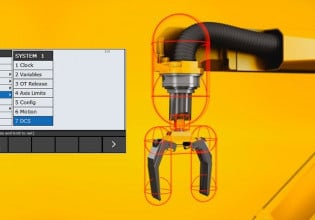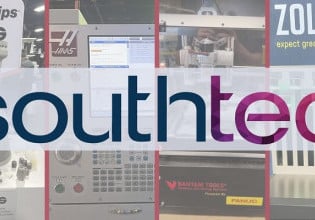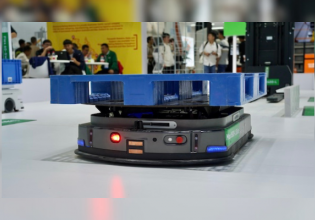KUKA Moves Toward Digitalization Using Nokia’s Industrial 5G Network
KUKA’s Germany-based manufacturing facility is set to deploy Nokia’s 5G SA (standalone) private wireless network.
KUKA, a large industrial robot manufacturer headquartered in Germany, plans to implement Nokia’s 5G standalone private wireless network into its manufacturing facility. This is a move toward digital transformation and away from traditional industrial networks, like Ethernet.
Industrial-grade 5G SA/Private Wireless and Its Importance
Standalone, or private network, 5G takes a slice out of the public network and closes it off. For instance, mobile phones run on public 5G. However, industrial facilities need to run on private networks for several reasons.
First, private networks are supposedly less hackable than public networks. Second, private networks can stream more data faster than public.

How data improves with 5G for manufacturing. Image used courtesy of Nokia
In an interview with Control Automation, Vieri Vanghi, vice president, product management of Qualcomm, explained, “If you deploy an industrial product and you want to connect that industrial robot wirelessly to be controlled remotely, you cannot do it reliably over a public network. You have to have a dedicated network.”
An industrial network and the machines on the network must be reliable, or it could affect the entire supply chain. Reliability is often a factor why control engineers stick with the “tried and true” networking systems, such as Ethernet or Modbus. However, digital transformation is constantly growing.
With the uptick of cyber threats in industrial control systems (ICSs), security matters now more than ever. Recently, Honeywell reported an 18% increase in removable media threats alone. Government agencies like CISA and NIST have implemented new guidelines and patterns to help manufacturers secure their SCADA and other control systems. Using a private network over a public one can help mitigate security risks.
Video used courtesy of Nokia
Additionally, public networks stream everyone’s data and can become bogged down. With the sheer amount of data industrial facilities send through their networks—and the need for reliability—industrial networks need a private network to exclude all unnecessary external data.
KUKA Moving Toward Digital Transformation and Industry 4.0
KUKA is one of many companies striving toward digital transformation and Industry 4.0 to create smart factories. In particular, KUKA plans to use Nokia’s easily upgradable 5G to stay on top of industry trends and automation solutions.
During an interview with Control Automation, Mart Berutti, VP of Sales and Marketing, Digital Transformation at Emerson Automation Solutions, talked about how all manufacturers are moving toward digital transformation because it’s necessary to adopt.
In addition to using Nokia’s 5G, KUKA will also rely on Nokia and its Digital Automation Cloud (DAC) to integrate new 5G-based interfaces or components for its solutions portfolio.
Nokia’s Digital Transformation Solutions
The DAC provides security and scalability as an end-to-end private wireless and edge computing platform. The platform boasts a plug-and-play architecture with full control over creating and managing multi-local networks.

How Nokia’s 5G can boost automation through the cloud, networking, security, and more. Image used courtesy of Nokia
The unlicensed, shared, or licensed options allow companies to better secure their control systems from inside or outside connectivity. Even on a licensed spectrum, remote monitoring is still available through the web-based portal.
Nokia combines their 5G and Industry 4.0 solutions for their smart factory solution. Based on a Nokia and ABI Research survey, 92% of manufacturers are considering 4G/5G networks. Nokia believes integrating 5G can optimize performance and productivity, increase flexibility, and support automation.
Do you agree that 5G will enable digital transformation in a way we haven’t seen before? Does your company plan to integrate 5G into its networking system?






